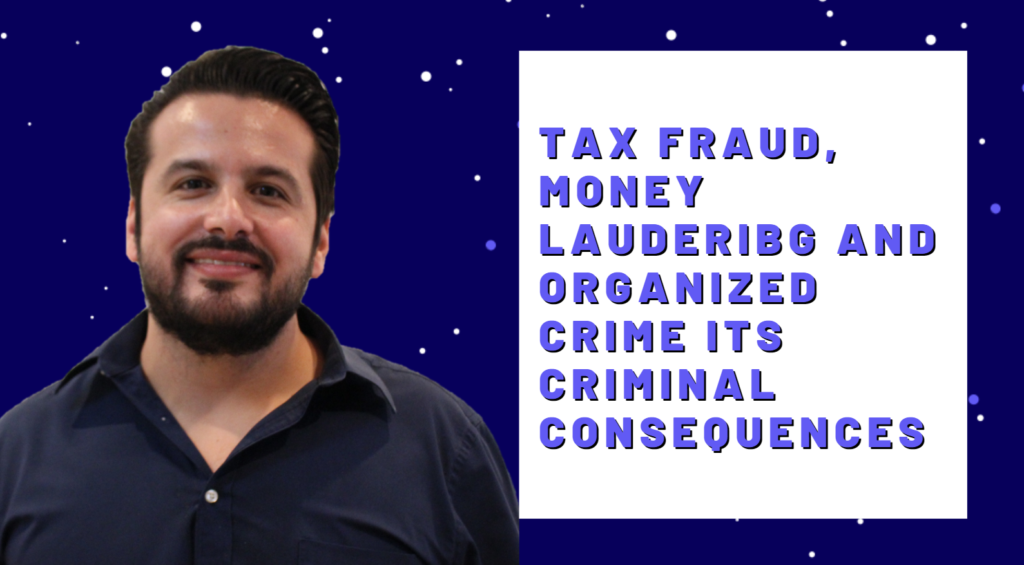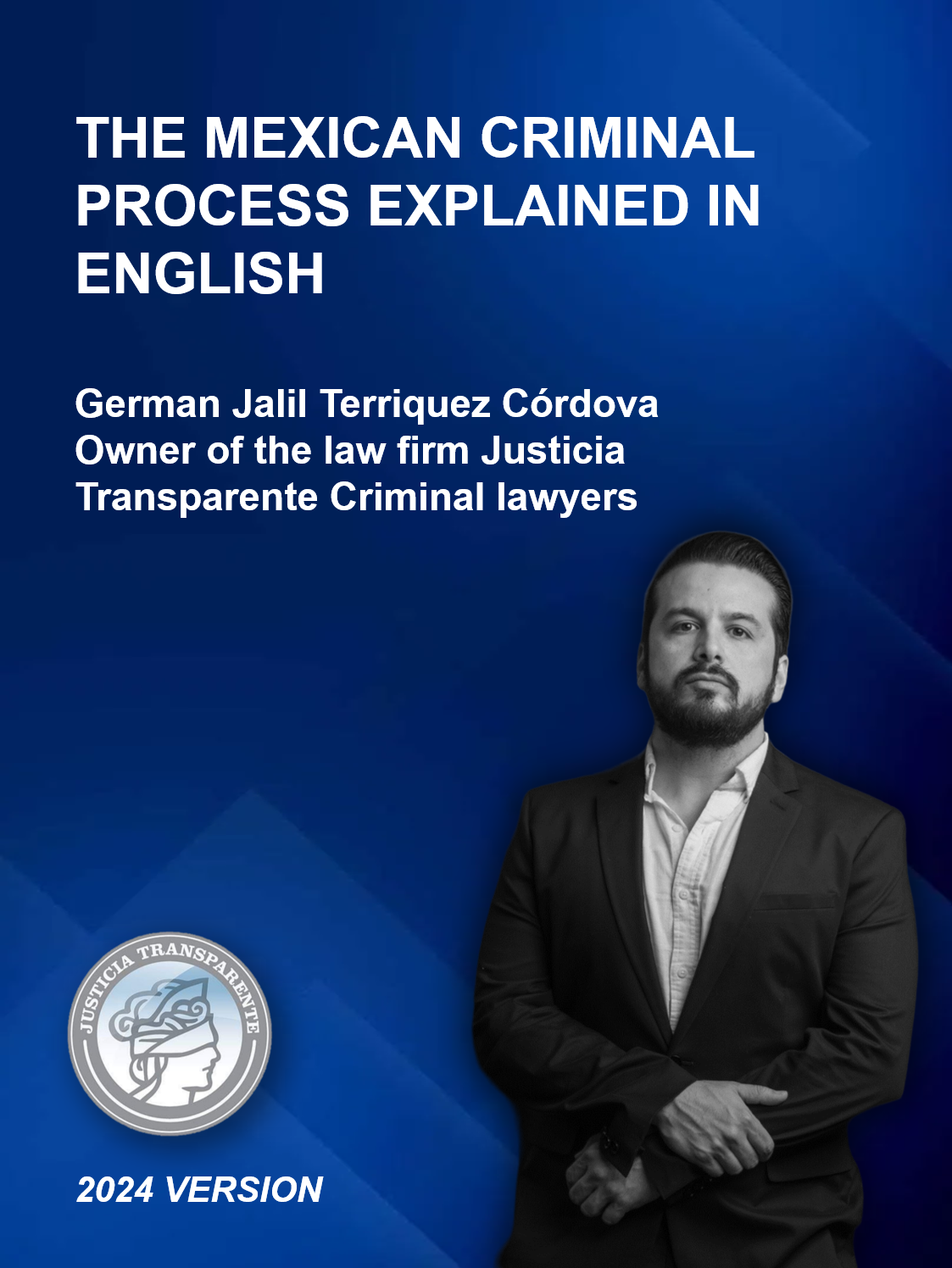
1. Tax fraud, money laundering, organized crime, when do these crimes occur?
First we break down the crimes one by one and then use examples and verify in which cases these criminal types could be accredited within a criminal procedure
Tax fraud: it is regulated in article 108 of the Federal Tax Code, which is practically credited with the following actions:
-With the use of deception, totally or partially omit the payment of any contribution to the detriment of the Federal Treasury:+
Example: You buy a false invoice, you enter it into your accounting and with this we request that the deduction be applied.
Accused a relative of a crime in Mexico? Do you need to know if it is a crime to bring weapons into Mexico? Do you need to know if it is a crime to bring marijuana into Mexico? The prosecutor is accusing me of having committed a crime that I did not commit? Has your loved one been in jail in Mexico for years?
If you are in one of these situations, hire an online consultation.
– Taking advantage of errors, totally or partially omit the payment of any contribution to the detriment of the Federal Treasury
-With the use of deception, obtain an undue benefit to the detriment of the Federal Treasury.
Example: You use a tax incentive that is not applicable for your line of business, such as using a tax incentive applied to gas stations, and make those deductions and thereby reduce the taxable base.
-By taking advantage of errors, obtain an undue benefit to the detriment of the Federal Treasury.
Example: The sat makes you a VAT refund by mistake, and the taxpayer prefers to remain silent instead of reporting the error.
Money laundering: it is regulated in article 400 bis of the federal penal code.
Being a complex crime, we transcribe the criminal type.
Article 400 Bis. A five to fifteen year prison term and a one thousand to five thousand day fine shall be imposed on anyone who, by himself or through a third party, performs any of the following conducts:
I. Acquire, transfer, manage, custody, possess, exchange, convert, deposit, withdraw, give or receive for any reason, invest, transfer, transport or transfer, within the national territory, from this to abroad or conversely, resources , rights or assets of any nature, when you have knowledge that they come from or represent the product of an illegal activity,
II. Conceal, conceal or intend to conceal or conceal the nature, origin, location, destination, movement, property or ownership of resources, rights or goods, when it is aware that they come from or represent the product of an illicit activity.

Example: Now, for the purposes of proving money laundering and using tax fraud as the prior offense, the public prosecutor regularly uses this theory of the case.
The prior crime, which is tax fraud: In this case, tax fraud becomes the prior crime, which is updated in this way:
Some aggressive tax planning system is used, which has the result that the payment that should be made for ISR or IVA to the federal treasury, is returned to the taxpayer by some means payable to the same, such as unions, assimilated to salary, among others.
That dirty or illegal money, the product of having defrauded the treasury, enters illegally, enters the financial system regularly as legal money, and is used to make other types of investments, payments, etc.
It is under this scheme in which the public prosecutor makes its accusation for tax fraud and money laundering.
Organized crime: In relation to this criminal type, it is easier to understand it, since precisely the law indicates the following
Federal law against organized crime
Article 2.- When three or more people are in fact organized to carry out, permanently or repeatedly, conducts that by themselves or in conjunction with others, have the purpose or result of committing one or more of the following crimes, they will be sanctioned for that alone In fact, as members of organized crime:
VIII Bis. Tax fraud, provided for in article 108, and the assumptions of equal tax fraud, provided for in articles 109, sections I and IV, both of the Federal Tax Code, exclusively when the amount of the fraud exceeds 3 times the provisions of the section III of article 108 of the Fiscal Code of the Federation;
Now, in relation to this crime, it is important to make the following clear
The first point, that when three or more people are already partners of a company, tax consultants in charge of selling tax planning, selling invoices, among others, associate to commit the above-mentioned acts, it may be considered organized crime.
There are jurists who believe that at least in most cases, tax offenders are associated in law and not in fact, that is, through a company constituted between themselves, which in their point of view, they consider that leads as a result that this crime is atypical.
In particular, we believe that this is a weak defense when it comes to defending this accusation, at least at the level of connection to the process, which is the judicial resolution that formalizes the criminal process and brings it to your attention, and he mentioned this resolution in In particular, because that resolution involves the imposition of informal preventive detention, and at the same time that the businessman or tax advisor takes the process in prison, which is the most serious scenario.
2. How do these crimes proceed?
Tax fraud proceeds by complaint, money laundering by complaint of the Ministry of Finance and Public Credit and organized crime is followed ex officio.
This means that when the SHCP has elements to make an accusation of this type, it will give reports to the Federal Prosecutor’s Office, who in turn will send the complaint to the public prosecutor.
It is important to note that if you are reported for these crimes, the way they will lead you to appear in the process is by means of an arrest warrant, not by summons.
3. Does an accusation for these crimes merit informal preventive detention as a precautionary measure?
If preventive detention is appropriate in accordance with the provisions of article 167 of the National Code of Criminal Procedures.
This means that if the public prosecutor considers that it has elements to prosecute the matter (prove the facts with the appearance of a crime and the probability that the accused committed them), it will in any case request the initial hearing to formulate an accusation, impose precautionary measures and link to the process, so that if the judge decrees to link the criminal prosecutor to the process, the latter will take the process in prison.
4. Does the reparation agreement proceed?
It is not appropriate to reach a reparatory agreement, so there will be no way to settle an accusation with these crimes through an amicable agreement.
5. Is the conditional suspension of the process appropriate?
Neither does the conditional suspension of the process proceed since it does not fit into the requirements to be able to carry it out.
6. Is there any way out other than trial if I am being accused of tax fraud and organized crime? Because the three crimes are presented together, no way out other than the trial is possible.
The Mexican criminal process explained in English


